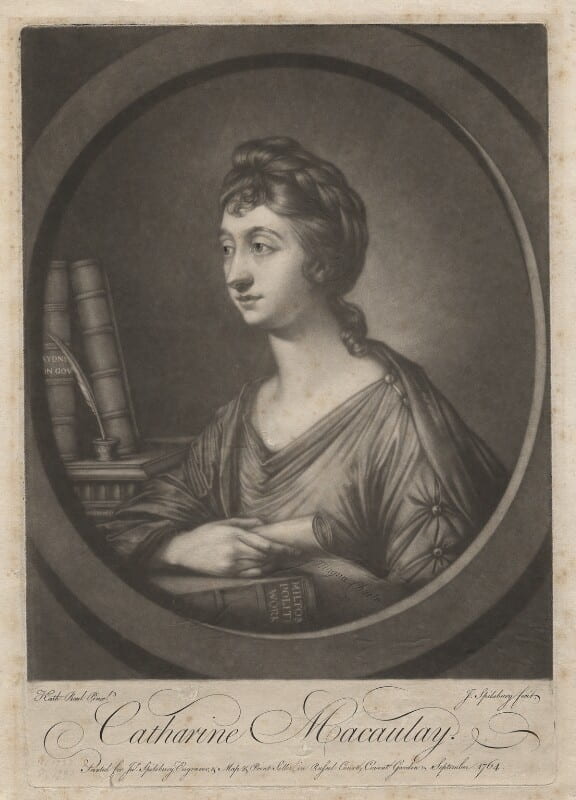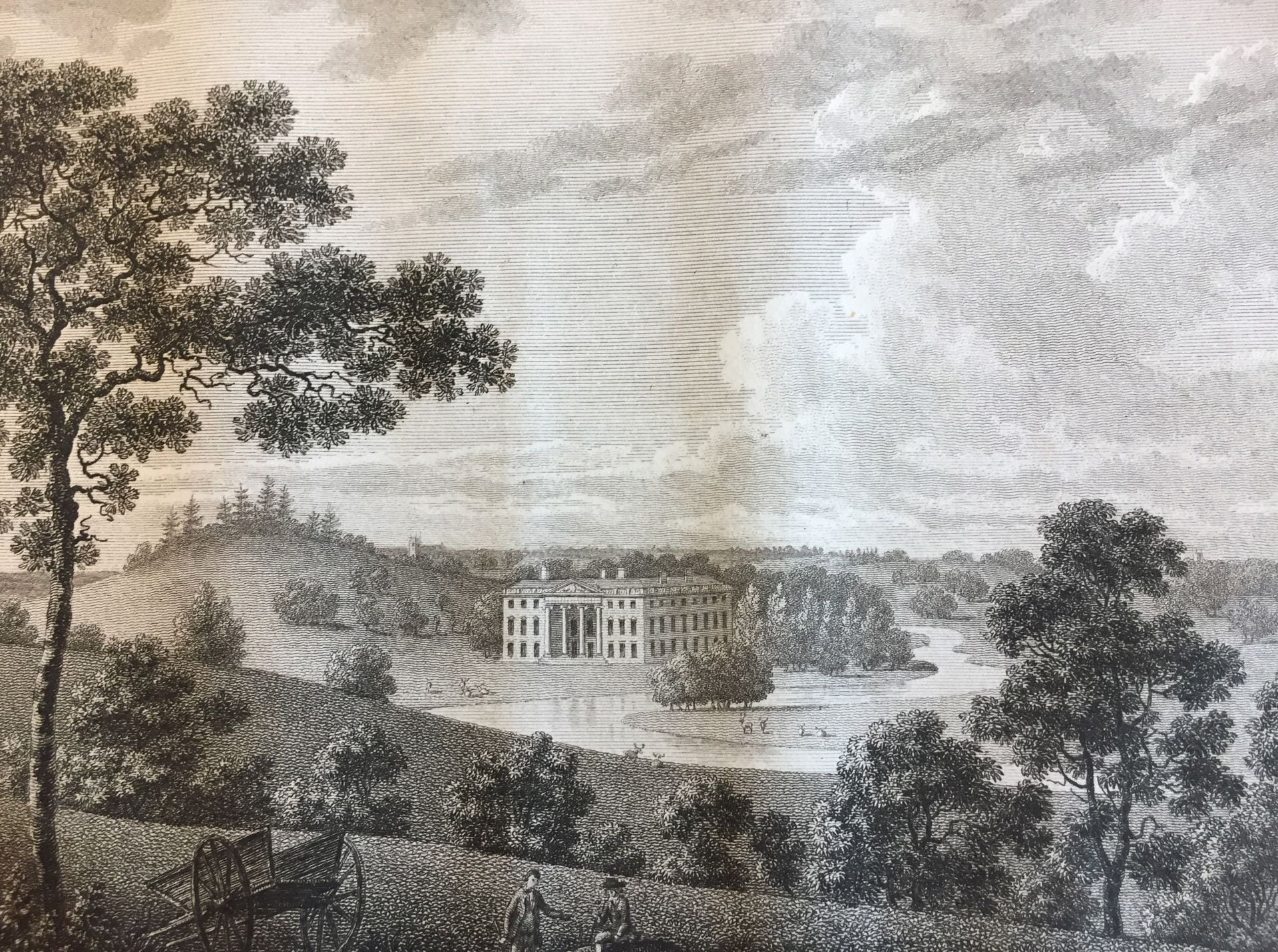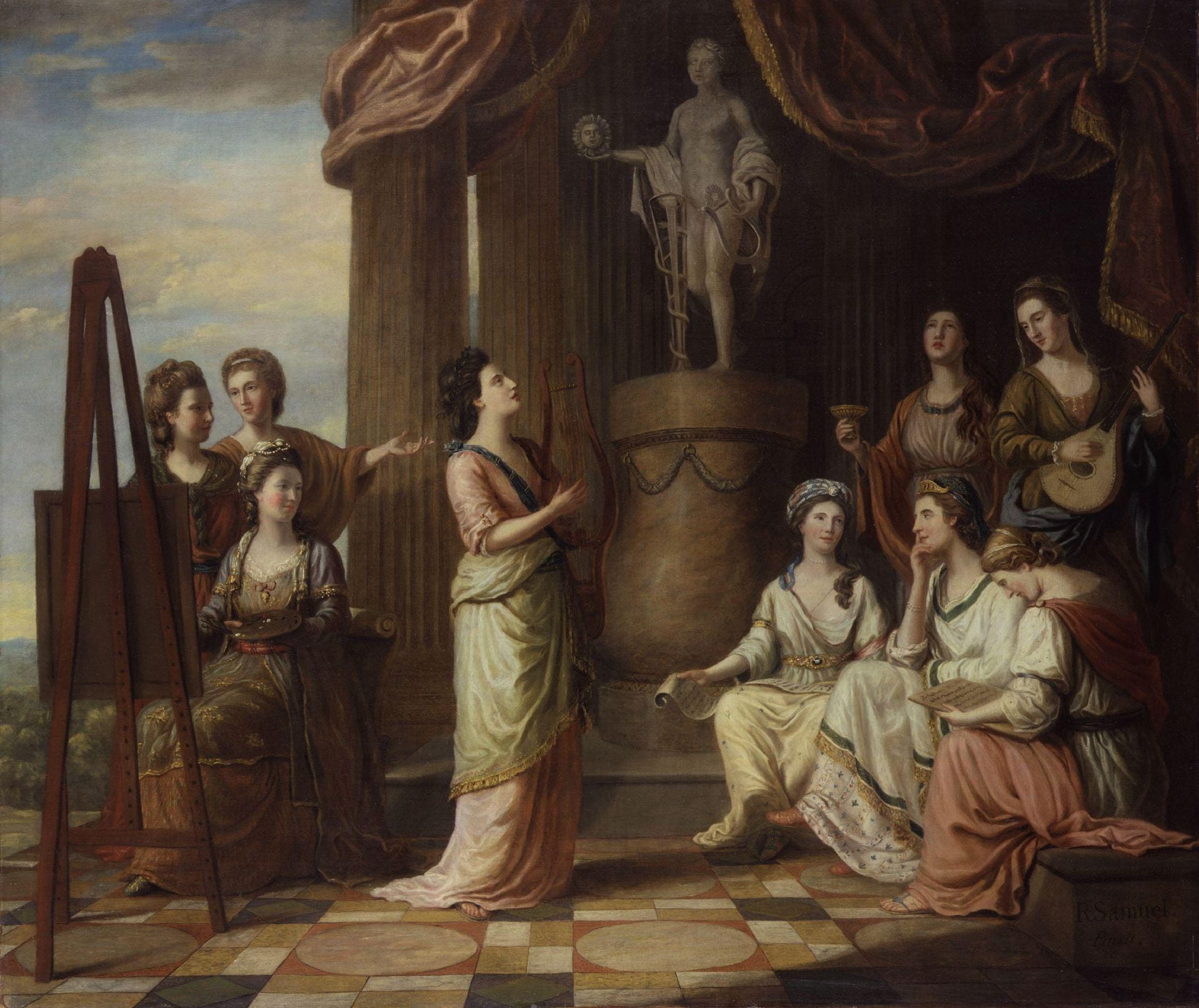
Feminism and the History of Democracy
The English historian Catharine Macaulay (1731–1791) was one of the leading radical thinkers of her time and, yet, she has been largely forgotten today. In this blog post, Karen Green, Honorary Professorial Fellow in Philosophy, and author of a number of works about Catharine Macaulay, makes the case for reintegrating her legacy into the history of feminism and democracy.
In her Vindication of the Rights of Woman (1792), Mary Wollstonecraft paid tribute to Catharine Macaulay, saying, “The very word respect brings Mrs Macaulay to my remembrance. The woman of the greatest abilities, undoubtedly, that this country has ever produced. – And yet this woman has been suffered to die without sufficient respect being paid to her memory.”
When, during the 1980s, I first read this comment, I had no idea who this Mrs Macaulay was, and passed over the passage without recognising its significance. Wollstonecraft had continued, “Posterity, however, will be more just; and remember that Catharine Macaulay was an example of intellectual acquirements supposed to be incompatible with the weakness of her sex.” Yet Wollstonecraft was mistaken in her prediction; for while posterity had, to an extent, remembered her, by the 1980s, it had almost completely forgotten Macaulay.
This is surprising since, during the eighteenth century, Macaulay had been celebrated as one of the leading radical thinkers of her time. She had been depicted as ‘Libertas,’ the spirit of liberty and had had a statue made in her honour, which represented her as Clio, the muse of history. Her private life had become controversial when, at the age of 47, she married a man 21 years her junior.

Three years after the accession of George III (in 1760), she had begun publishing a History of England from the Accession of James I, in which she gave a detailed account of the English Civil War, and the events that led up to it. It differed from other available histories, in particular those of David Hume and Tobias Smollett, in being sympathetic to the claims of the republicans and Levellers. She justified the execution of Charles I on the basis of the claim that sovereigns derive their authority from the consent of the people, so that the people have a right to depose them, whenever they fail in their obligation to govern for the good of the people.
She used the language of universal rights in her account of the conflicts over taxation and religious liberty that had resulted in the English revolution. She coined the phrase “the equal rights of men”, and claimed that government was “instituted for the protection of the people, for the end of securing, not overthrowing the rights of nature”. She imagined that her society could progress towards being a democratic commonwealth, by which she understood a system that promoted individual virtue and universal benevolence.

The first five volumes of her history, which ultimately grew to eight volumes and was not completed until 1783, were enthusiastically welcomed by readers in the North American colonies, prior to Independence. These readers saw themselves as the descendants of the dissenters, many of whom had fled persecution by the Stuart monarchs, as recounted in her work. In their conflicts with George III’s administration over the stamp tax and excise duties, they were reigniting the earlier debates over taxation and representation that Macaulay had developed at length.
During the early 1770s she began corresponding with a number of Americans who were involved in the events that resulted in the Declaration of Independence, including John Adams, John Dickinson, Benjamin Rush, James Otis, and Mercy Otis Warren. After the revolution she visited America, staying for a few days with George Washington and afterwards carrying on a friendly correspondence with him.

Her historical works were also read by the French, in particular by Jacques-Pierre Brissot de Warville and his wife Félicité Dupont, whom she befriended during their residence in London, between 1783 and 1785. Through this connection, her work became known to Mirabeau, who organised for the translation of the first five volumes into French. In a letter to Brissot he drew out the importance of the influence of the political ideas developed during the seventeenth century for both the American and French revolutions; he wrote:
It was from the torch of reason, of these men [the Levellers], who were eminently enlightened during a century when no-one else was, that the Americans lit theirs. To be convinced of this, one only has to read the excellent history by Miss Macaulay and compare what this excellent woman tells us about the Levellers, whose principles she has developed so well, with all the public writings of the Americans during their troubles.
Having now worked for over a decade on Macaulay’s history and philosophy, as part of a broader project on the history of women’s political thought, my understanding of the origins of the democratic revolutions of the eighteenth century and the feminism of the nineteenth century has been completely transformed. For, whereas the history that I was taught suggested that feminism was the offshoot of a movement that was completely dominated and directed by men, it is clear that at least one woman, Catharine Macaulay, was a highly effective advocate for democratic principles, electoral reform, and an extended franchise.

Moreover, she did all this during a period when many of her male contemporaries, whose names we still remember, such as Samuel Johnson and David Hume, were monarchists, and accepted widespread political inequality. Johnson, in particular scoffed at Macaulay’s levelling principles and spread about a story according to which he had tried to embarrass her, by suggesting that her footman should sit down with them.
Macaulay was an advocate for the equal rights of all mankind before she turned, in her Letters on Education (1790), to the particular situation of women. In this penultimate work she argued that girls should be educated with their brothers and to the same high standard. It had a significant impact on Wollstonecraft, who reviewed it for the Analytical Review and extended its arguments in her Vindication of the Rights of Woman.
Wollstonecraft is thus the heir to an older feminist tradition. For, although Macaulay’s major work, which criticised the injustice of aristocracy and absolute monarchy in the name of universal equal rights, was written before she turned to women’s situation, it was the feminism of earlier seventeenth and eighteenth century women that had opened up the path for Macaulay to take on the project of advocating for democratic political reform and to aspire to promote political and ethical progress, in the name of all humanity.
Karen Green is a Professorial Fellow in the School of Historical and Political studies and has recently edited The Correspondence of Catharine Macaulay (Oxford, 2019) and authored Catharine Macaulay’s Republican Enlightenment (Routledge, 2020).
Feature image: A Speedy & Effectual Preparation for the Next World, satire representing Catharine Macaulay (detail), 1777. Artist: Mattina Darly. British Museum, J,5.109